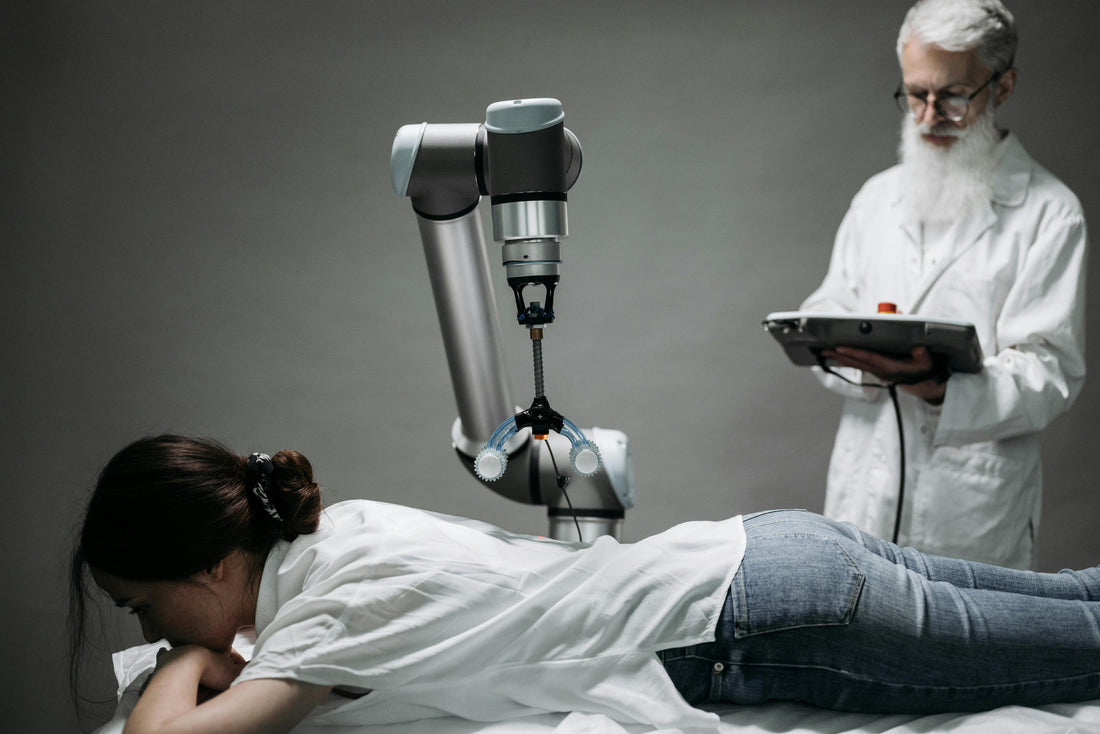
AI for Mental Health: Career Opportunities in Digital Therapeutics
Share
The intersection of artificial intelligence (AI) and mental health is transforming the way care is delivered, creating a burgeoning field known as digital therapeutics. These innovative tools, driven by AI algorithms and data analytics, offer new ways to support mental well-being, making therapy more accessible, personalized, and scalable. But while AI’s potential in mental health is vast, it raises important questions about the future of traditional therapy roles, the ethical implications, and the opportunities for healthcare professionals.
AI is currently used in mental health therapy to deliver interventions through digital platforms, often in the form of chatbots, cognitive behavioral therapy (CBT) apps, and virtual reality experiences designed to treat conditions such as anxiety, depression, and PTSD. These AI-powered solutions can analyze user behavior, track emotional patterns, and provide tailored feedback, helping individuals manage their mental health in real time. For example, AI chatbots like Woebot and Wysa simulate conversations with users, offering emotional support and evidence-based techniques for coping with stress.
Digital therapeutics, a subset of digital health, differ from traditional digital medicine in that they are designed to deliver clinically validated therapeutic interventions. These tools can be prescribed by healthcare providers, similar to medication, and many have received FDA approval. Examples include apps like Pear Therapeutics’ reSET-O, which provides support for individuals with substance use disorders, and Happify Health, which addresses anxiety and depression through gamified interventions.
Despite the advancements, AI cannot fully replace human therapists. The therapeutic alliance—a key factor in effective therapy—relies on empathy, nuanced communication, and the ability to interpret complex human emotions, aspects where AI still falls short. AI lacks the depth of understanding and the human touch necessary for building trust and providing personalized care. While tools like ChatGPT and other conversational agents can supplement therapy, they are unlikely to replace counselors, psychologists, or psychiatrists entirely.
The future of AI in mental health presents significant career opportunities for healthcare professionals. Psychologists, counselors, and psychiatrists can collaborate with AI developers to create more effective digital therapeutics and ensure ethical guidelines are met. Additionally, roles in data science, AI ethics, and digital health product management are expanding as the mental telehealth market continues to grow. This market, projected to reach billions in revenue, highlights the profitability and demand for mental health apps and services.
AI is not a threat to mental health professionals but a complement that can enhance care delivery, especially in areas with limited access to mental health services. The integration of AI into mental health opens pathways for healthcare providers to develop hybrid models of care, combining human expertise with AI-driven insights. For healthcare professionals looking to explore career opportunities in this evolving field, free discovery call offers tailored coaching and consulting services to help you navigate the digital health landscape and position yourself for success in the age of AI.
Explore how you can leverage your skills and thrive in the rapidly growing digital therapeutics industry. free discovery call today to learn more about how we can support your career in healthcare innovation.

